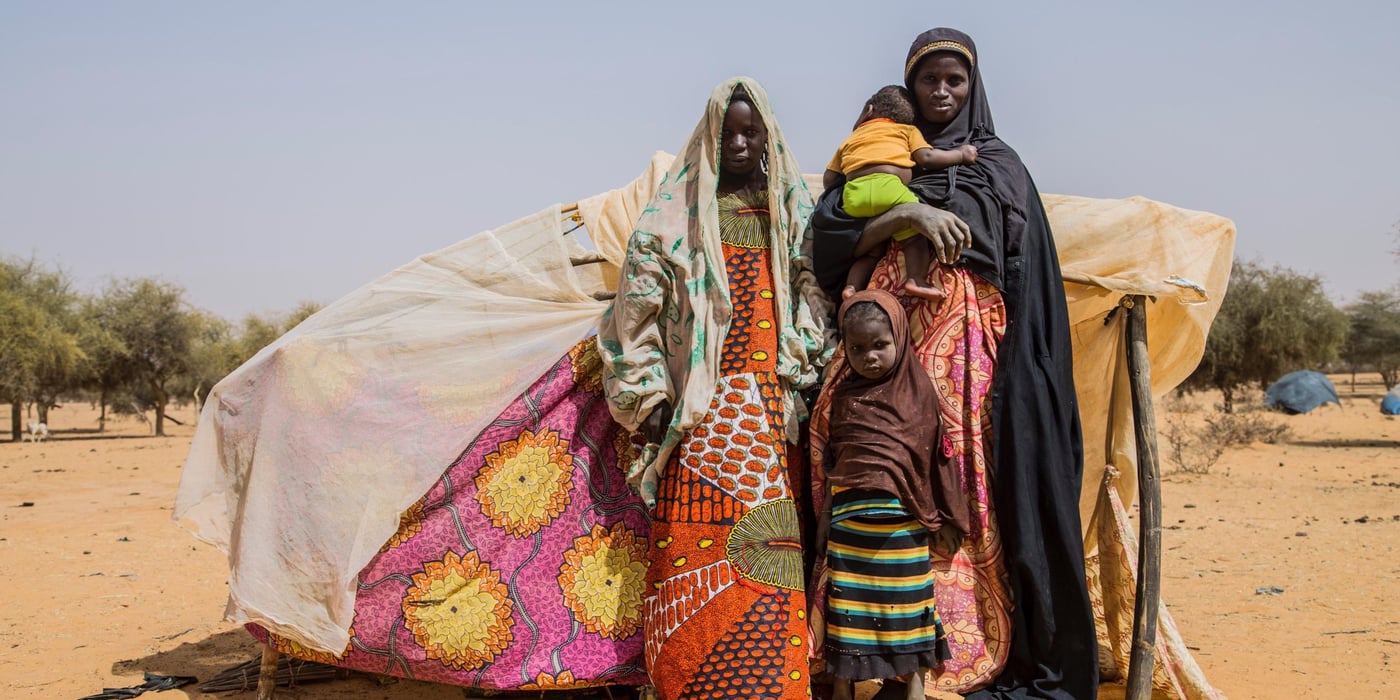
“They took my younger brother. We have not heard from him to this day. He was 16 years old then. I believe he is dead by now,” says Sadiya with a look of resignation.
Boko Haram’s terror campaign has led to the utter destruction of towns and villages, along with the homes and livelihoods of millions of families in north-east Nigeria. Today, 7.7 million people need humanitarian assistance in the region, and 1.7 million people are internally displaced. Intense military operations to re-take occupied areas have led to large-scale population movements, with over 100,000 new displacements in the last six months. With ongoing military operations, this trend is likely to continue.
Currently in Maiduguri, a city in north-east Nigeria, Sadiya is slowly rebuilding her life after losing everything she had built with her husband back in her hometown of Abadam.

An entrepreneurial spirit
Last year, the Norwegian Refugee Council (NRC) offered* Sadiya four monthly cash transfers for food, along with financial support – 43,500 Naira, the equivalent of 120 US dollars - to start an income generating activity. Sadiya chose to invest in a bedsheet business that turned out profitable enough to venture into another business: the making and selling of homemade spaghetti and bean cakes.
Today, Sadiya earns enough money to feed the whole family and to pay for her children’s school fees. “During last Ramadan, we couldn’t even afford Kunu (gruel) to break our fast,” she says.
Celebrating Eid
Unlike last year, Sadiya has been preparing to celebrate Eid el-Fitr, which marks the end of the Islamic holy month of Ramadan. She already bought a few roosters to be slaughtered for the celebrations.
“This year, there is enough to cook and we can even have a meal for Suhur [pre-dawn meal]. We even vary our meals, we don’t need to eat the same food over again.”
For three years after fleeing her hometown, Sadiya and her family relied on the generosity of neighbours. It is not uncommon that displaced people, who lost their livelihoods in the conflict, stand on bare ground without any support. This is mainly because humanitarian organisations lack the funding and access they need to support them.
I want to expand my bedsheet business, learn embroidering and become one of the biggest bedsheet retailers in Maiduguri.Sadiya, an internally displaced mother in north-east Nigeria
Her hometown would be next
Back in Abadam, Sadiya and her husband had livestock and cultivated red peppers on land they had been renting. “We lived well,” says Sadiya. “We would not worry about there being enough food to eat or how to send the children to school.”
But when Sadiya heard that Boko Haram had attacked the neighbouring town of Kangarawa, she knew her hometown would be next. This is when she decided to sell her livestock and red pepper crops. “I knew that I could not save any of these if Boko Haram came after us. We used the money from the sale to hire cars for our escape.”
Now, Sadiya is determined to be a successful entrepreneur. With a sly smile, she confesses, “I want to expand my bedsheet business, learn embroidering and become one of the biggest bedsheet retailers in Maiduguri.” Driven and ambitious, Sadiya shares a few qualities that she believes have been key to her success, “the first is to always smile and be sociable; next is to be honest and finally is to be a reliable person.”
Nearly four years after Boko Haram’s attack against her hometown, Sadiya still fears that the violence could reach her family and take away what she is currently building. Her two youngest daughters were born in Maiduguri where she plans to settle for good.
“I work here and my children go to school now. If my businesses keep growing, I have no reason to return to Abadam,” she says.
*The assistance provided was made possible through funds from the Swiss Development Cooperation




